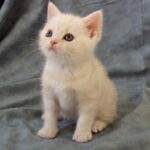Cat owners can provide the best pet care possible and still occasionally have a constipated cat sometime during its lifetime. Although any age cat may experience constipation, it is more common for elderly cats, ages 7 and up, to have sporadic episodes. If it only occurs infrequently, and lasts only a day or two, it may be manageable at home.
What is Constipation in Cats?
Constipation is the opposite of diarrhea. Like when it occurs in people, constipation is when a cat either has trouble moving solid waste or feces material out of the bowels. If the cat is very constipated, it cannot pass solid wastes, or defecate at all. Most cats defecate about once a day. A cat suffering from constipation may do so only once in 2 to 4 days, or even less!
Two vets at Ina Road Animal Hospital in Tucson, Arizona, Dr. Roger Emmons, DVM and Dr. Lexington Hoffman, VMD, have shared sage advice in dealing with our cat’s constipation issues which have developed as she has aged. Their first suggestion is to crush ½ tablet of senna and mix it into a tablespoon of canned cat food, tuna, or cooked egg twice a day. Senna is a gentle natural laxative. Water is also a staple in prevention of constipation in humans and animals, so keeping a fresh supply of water available is most important to a cat’s health. Sometimes, water might need to be forced with a syringe at the onset of constipation symptoms.
Little Big Cat suggests saving some money, since the cat laxatives like Petromalt ®and Laxatone® are petroleum based, by just letting the cat lap-up a ½ teaspoon of petroleum jelly to help move the excrement along. Some cats actually prefer the tastelessness of plain petroleum jelly over the more expensive brand cat laxatives, too.
What Causes Constipation in Cats?
There are many causes for cat constipation. According to Animal Pet Doctor, the most common cause results from cats licking and grooming themselves. Cat hair passing through the digestive system and the hair can ball-up, getting clogged in the cat bowels.
Our eight year old cat gets stressed and constipated when her owner, my daughter, gets within a few days of returning to college each semester. That cat loves her human and deals with the stress of preparing for the twice a year separation by letting her bowels get the best of her. Like small child or a young dog, sometimes a cat might eat things it simply should not have in its mouth at all. Our stressed-out constipation cat is known for eating rubber bands, and constipation from non-food items can easily occur with one rogue rubber band left on a table.
There are other possible causes for cat constipation. So, if you love your pet and the cat is not acting well or not beginning to show signs of passing solid waste within a couple days, please take the cat to the vet for an exam, diagnosis, and treatment. At that point, constipation may not be the only issue and the pet’s condition could become quite serious.
Sources:
Dr. Roger Emmons, DVM and Dr. Lexington Hoffman, VMD, Ina Road Animal Hospital, 7320 La Cholla Blvd., Tucson, AZ 85741
www.littlebigcat.com, Constipated Cats, by Jean Hofve DVM
http://animalpetdoctor The Cat Page
http://www.earthclinic.com Constipation Remedies for Pets
Lynn Pritchett, 40+ years cat owning experience
Disclaimer:
This article is for informational purposes only and is not intended to replace diagnosis or treatment by a licensed animal health professional. For this or any health issue in pet care, seek advice of the vet who knows that animal’s medical history. Online resources cannot replace the examination, diagnostics, and protocols of a vet educated and experienced in the medical needs of domestic pet health.
Reference:
- Microchip Pet ID Tags for Safety petproducts.suite101.com/article.cfm/prevent_lost_pet_with_low_cost_hightech_pet_id
- 24 PetWatch Product Review petproducts.suite101.com/article.cfm/24petwatch_product_review
- Petmate Litter Locker Plus Review petcare.suite101.com/article.cfm/petmate_litterlocker_plus



